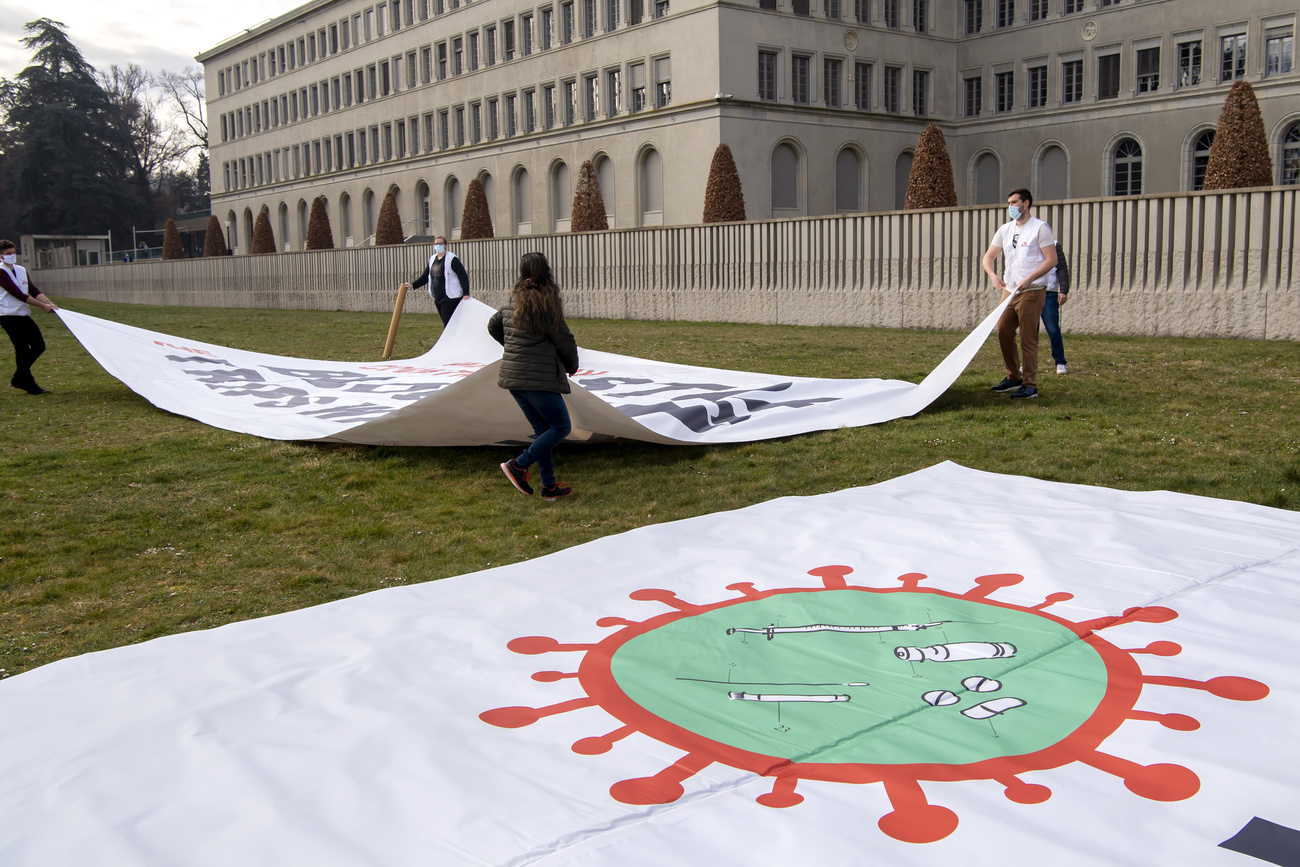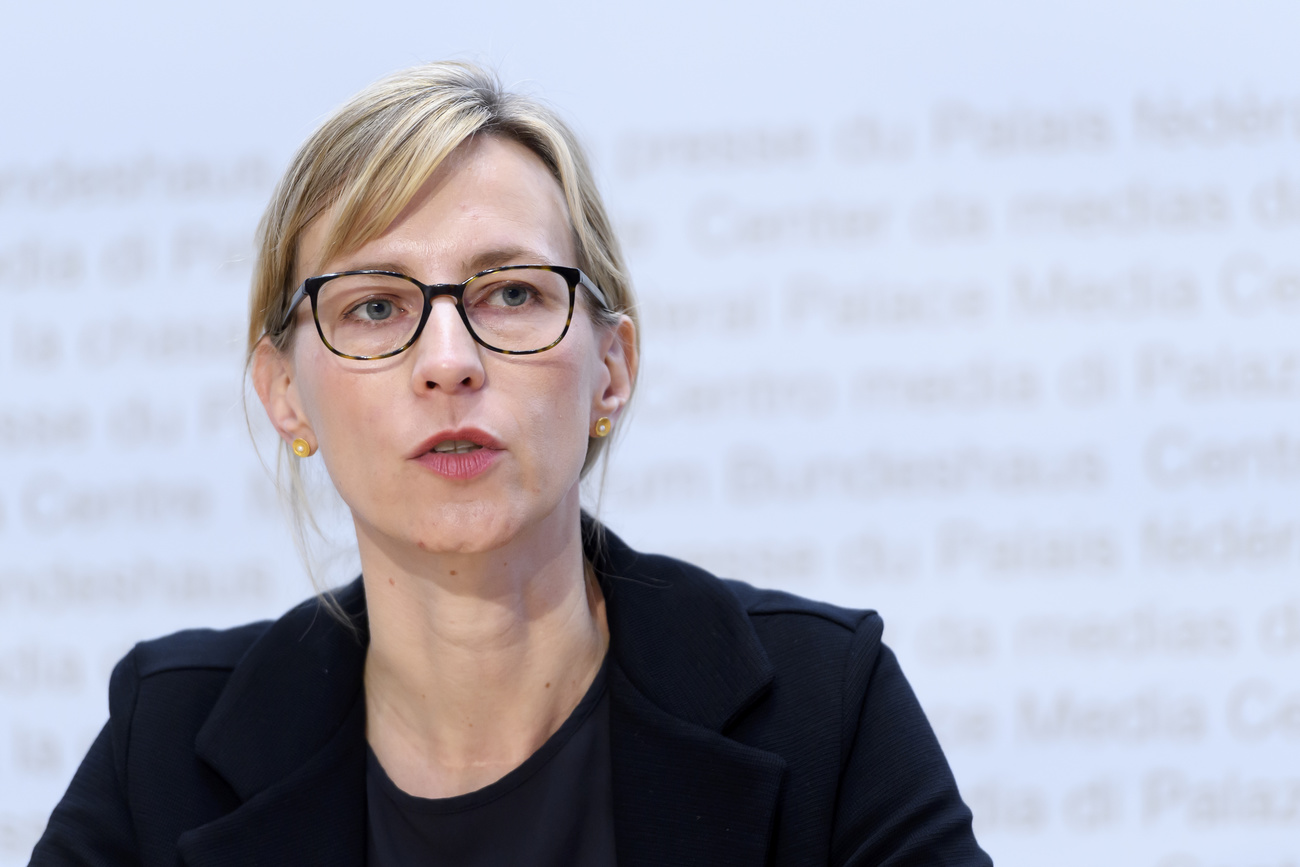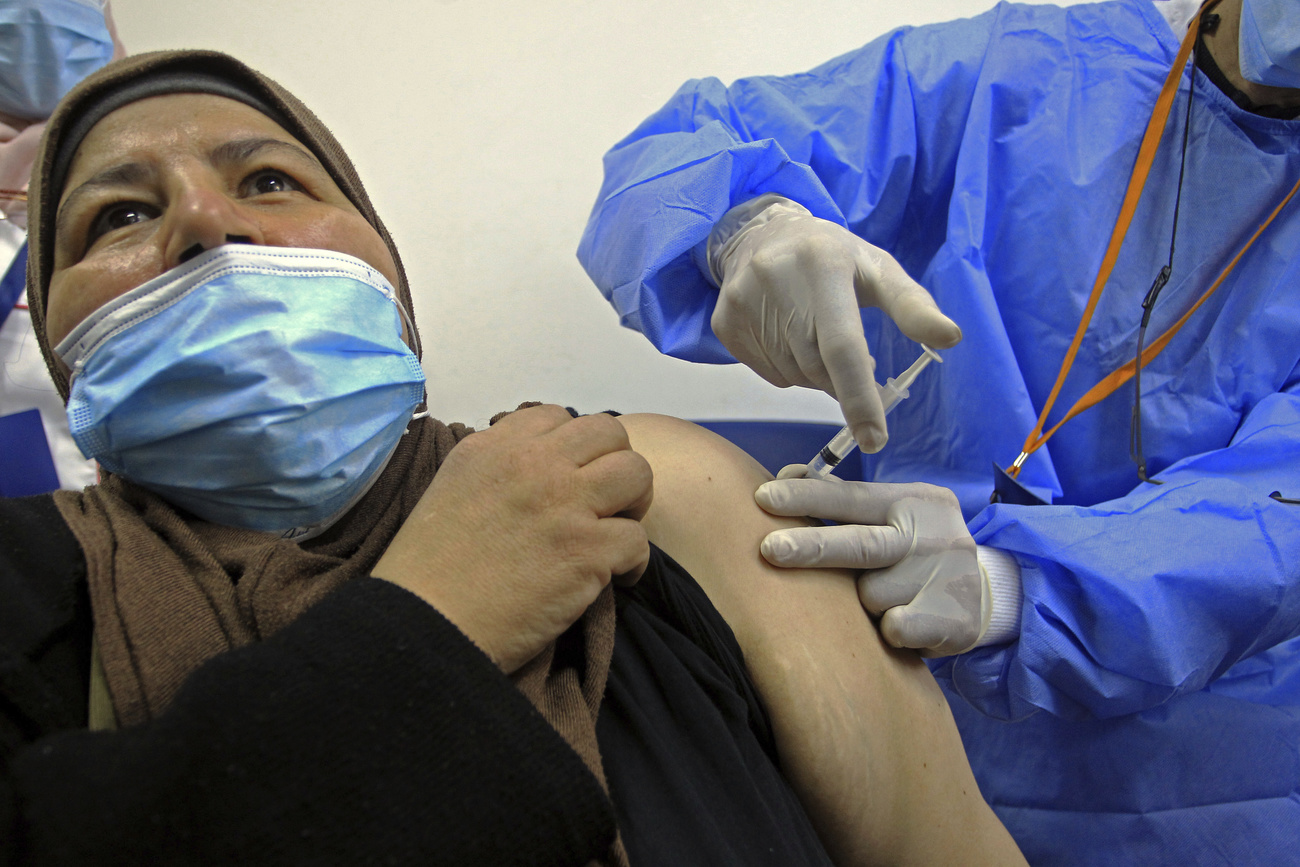Vaccine access inequities increase global tensions

Global health authorities have stepped up their calls for equitable distribution of vaccines. A Geneva expert warns that “vaccine nationalism is going to exacerbate geopolitical tensions”.
The World Health Organization (WHO) took advantage of World Health Day on Wednesday to release a call to action against increased domestic and international inequities in the wake of the Covid-19 pandemic. A focus is given to the global access to vaccines and other medical supplies.
Though some high-income countries have administered vaccines to large swaths of their populations, many poor nations still await their first doses. A situation which WHO director-general Tedros Adhanom Ghebreyesus denounced as a “moral outrage” both “economically and epidemiologically defeating”.
“Vaccine nationalism is going to exacerbate geopolitical tensions,” warned Michel Kazatchkine, a global health expert at the Graduate Institute Geneva. Kazatchkine made the comment in a recent interview with Swiss public radio, RTS. Kazatchkine sits on the Independent Panel initiated by the World Health Assembly (WHA) to examine the global health response to the pandemic. He too, is critical of rich countries keeping vaccines for themselves, while other producers such as China, Russia and India have exported doses to low-income countries.
The global initiative COVAX was meant to insure equitable access to vaccines. But the effort, Kazatchkine argues, was disrupted as the United States initially refused to join and other European countries purchased doses on their own.
But the problem today, according to Kazatchkine, is a “bottleneck” on vaccines production. A problem that he says has no quick fix as building production facilities can take months.

More
Vaccine patent waiver push takes centre stage in Geneva
“What is clear is that we are not learning lessons from the past.”
Kazatchkine regrets the lack of strategy displayed by western countries in dealing with the pandemic. He said that it was especially the speed and intensity of the initial response which had proven key in previous epidemics.
“We are obviously confronted by an emergency and under pressure. Countries are turning inwards and prioritising the well-being of their populations. They are not looking at the big picture – beyond their borders and at a global scale.”
The issue of equitable access to vaccines is likely to be discussed at the 74th WHA that will take place in Geneva, from May 24 to June 1.

In compliance with the JTI standards
More: SWI swissinfo.ch certified by the Journalism Trust Initiative










You can find an overview of ongoing debates with our journalists here . Please join us!
If you want to start a conversation about a topic raised in this article or want to report factual errors, email us at english@swissinfo.ch.